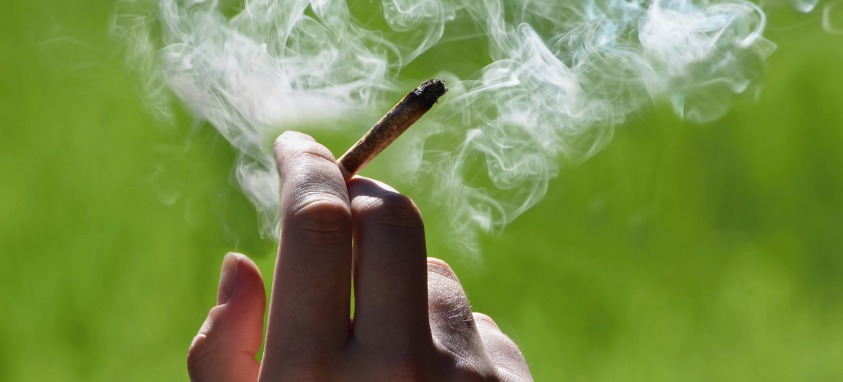Editor’s Note: This article was updated on 4/20/2020.
Are you liable if an attendee gets high at your event? Is recreational marijuana legal in your state? Are you perhaps considering offering marijuana products at your next gathering? We’ve updated this article in order to answer your most pressing pot planner questions to date.
The reality is, in 2020, policies around marijuana can no longer be ignored. As many states have legalized it for recreational use, new policies are leading to major change in our country—cannabis dispensaries are even considered essential business during the coronavirus (COVID-19) lockdown. Even in states that haven’t legalized it, marijuana’s growing presence and acceptance among the general public is undeniable. Plus, younger generations are entering the workforce every day, and many of these people have grown up with very accepting attitudes toward marijuana.
So what precautions should planners take? How should strategies vary by state? Chill out while we give you the lowdown on marijuana and meetings.
Be Aware of State-by-State Rules
Despite federal restrictions, each state also has its own policies about marijuana use, and these discrepancies can pose issues. If an attendee is from a state in which marijuana is legal but the event is in one with stricter laws, then the attendee must comply with in-state laws— even for medicinal use. If your event is in a state where it’s completely illegal, then you’re responsible for notifying attendees—especially the out-of-towners.
Attendees coming from states where it’s illegal to states where it is legal need to be informed about specific restrictions. For instance, many venue properties still prohibit indoor or public smoking due to federal laws, so be sure to review the particular rules prior to an event. Other rules that always apply, even for recreational use, are: the minimum age requirement is 21 years old, driving under the influence is illegal and marijuana must be purchased from an authorized dealer.
Much Ado About Edibles
To get around smoking laws, an attendee might indulge in an edible. Each state that permits edibles has its own policy. For example, Alaska and Washington are very particular about edibles. In Alaska, the single serving size is defined as 5 mg of THC and a package sold cannot contain more than 10 servings (or 50 mg). Additionally, public consumption is illegal. In Washington, it’s also illegal to “consume marijuana in view of the public,” and limitations on purchase are as follows: 16 oz. of marijuana-infused edibles in solid form, 72 oz. in liquid form and 7 gm of marijuana concentrates.
It’s also worth noting that edible’s effects vary greatly by individual, which has made it difficult for states to determine proper dosing standards. If someone is surpassing the legal amount at your event, that always warrants the boot. Finally, even if the state allows edibles, you or your venue can still choose to prohibit them. Just make sure you communicate that clearly to attendees before the event.
Are You Liable?
It should be thought of like alcohol. Planners shouldn’t be liable for how intoxicated an attendee gets and what that person chooses do during this time. However, it could easily become a concern if a guest got injured and a lawsuit arose. If your event has on-site security, make sure they are aware of the rules and looking out for attendees who have overindulged. Your policy will also need to be clearly stated and communicated to attendees.
If you decide to offer marijuana, you’re going to need a policy in place. This might sound unusual, but there are actually more and more events using “marijuana concierges,” or onsite services offering trusted and certified marijuana products. They are quickly gaining popularity at social events. Before you decide to provide one of these services, discuss your liability with the vendor. Will attendees be signing a waiver? If so, what are you still responsible for? Prepare similar questions about personal liability before you hire the service.
Refresher on Marijuana Laws by State
The states which are not listed have no broadly recognized laws on the matter.
Marijuana Legalized for Recreational Use
- Alaska
- California
- Colorado
- Illinois (Recreational sales beginning Jan. 1, 2020)
- Maine
- Massachusetts
- Michigan
- Nevada
- Oregon
- Vermont
- Washington state
- Washington, D.C.
Medical Use Legalized
- Arizona
- Arkansas
- Connecticut
- Delaware
- Florida
- Hawaii
- Louisiana
- Maryland
- Minnesota
- Missouri
- Montana
- New Hampshire
- New Jersey
- New Mexico
- New York
- North Dakota
- Ohio
- Oklahoma
- Pennsylvania
- Rhode Island
- Utah
- West Virginia
- Wisconsin
Completely Illegal with Penalties and Incarceration
- Idaho
- Indiana
- Kansas
- South Dakota




